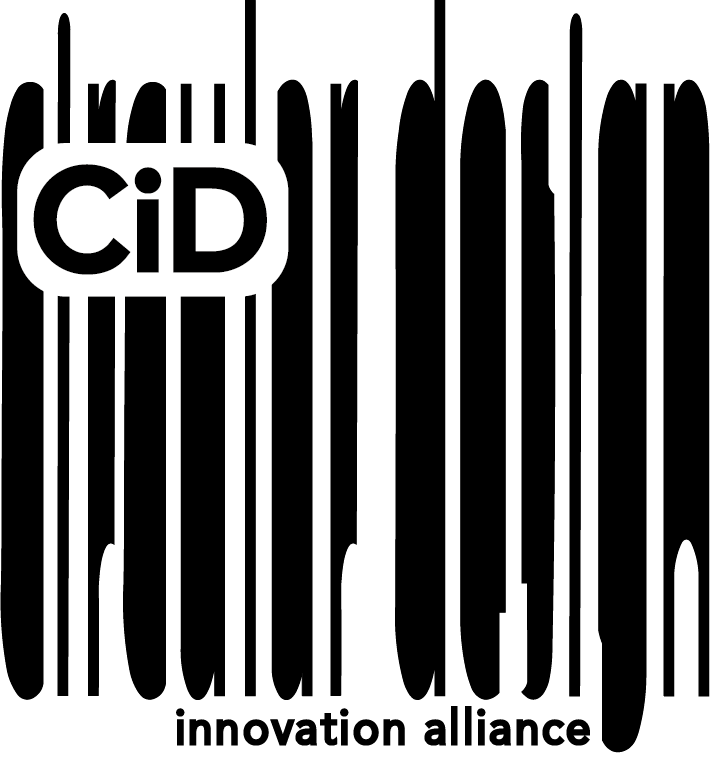
education
CiD develops 3 innovative education programmes with 10 courses: (1) three academic courses, (2) an accelerator course, and (3) six continuous education courses. They are bound together through the transversal dimensions of circular economy, urban transformation, and bio-based innovation with further interdisciplinary linkages. All partners of the Alliance and further experts (SME, organisations) from the Observatories are involved in the development and implementation of the programms.
-
CiD highlights the role of entrepreneurship for circular economy and focuses on business innovation for SME in urban design, architecture, and product/service design – with the backdrop to understand innovation in technologies and products linked to service innovation. CiD extends towards aspects of social entrepreneurship, entrepreneurship in research, and entrepreneurial approaches in public administration, with high relevance for the professional practice of urban planners, architects and product/service designers.
-
Parallel to innovation in contents, derived from CiD research, the Alliance develops innovative teaching and learning methodologies: flip teaching, challenge-based, project-based and situated learning, learning-by-doing, model-thinking, peer-learning, sessions with experts from the Observatories, provision of entrepreneurial and digital skills. A CiD specific career guidance for students and learners is organised by ARCES Association.

Academic programme
-
Through innovative teaching methodologies, knowledge exchange with experts, and a pitching competition, students will be able to successfully pitch their validated solutions and understand how to scale them. The 3 courses developed in the Programme are:
+ CiD Digital MaGer Course (led by Institute of Advanced Architecture of Catalonia, Barcelona) combines design, upcycled materials, and digitalization could introduce a new holistic Building Intelligence that involves following principles of circular design and use of materials for achieving active or zero emissions systems, design for performance, and digital interfaces for activation or assessment
+ CiD Urban Design Research Lab (led by Leibniz University Hannover) targets urban and territorial strategies and processes of change for circular innovation towards climate-neutral cities, with the paradigm of "recycling the city" and new territorial-material flows for territorial innovation.
+ CiD Product and Service Design Course (led by University of Genova) focuses on design-driven innovation to products at different scales - from processes, to services, to events - with a focus on transformed, recycled and regenerated materials, bio-based materials, life-cycle-thining, and the update of supply chains.
Accelerator programme
-
It offers a dynamic learning environment where participants will gain practical insights, build valuable networks, and develop the confidence to turn their ideas into reality. The Programme starts with a competition in which students pitch sustainable business ideas related to urban design, architecture and product/service design. In the 3-week comprehensive course, participants will engage in interactive trainings and workshops, hands-on exercises, and mentorship sessions. Trainings will help participants to validate their product or service and develop it further. In addition to that, participants will learn about sustainable business models, financial management, marketing, team building, legal compliance, funding, sales, negotiations, and pitching. The Accelerator Programme is designed to develop a wide range of skills in students, preparing them for success in entrepreneurship and sustainable business ventures.
Continuous Education programme
-
The three innovation dimension of Circular Economy, Urban Transformation and Bio-Based Innovation serve as transversal connectors between different courses targeted for different audiences. These educational initiatives designed to provide ongoing learning opportunities to participants beyond their initial formal education by enhancing their knowledge, skills, and abilities in the field of Circular Design. The courses will take various forms, including thematic workshops, online courses, company visits and project works.
CiD highlights that not only technical skills are crucial for continous education but also development and design skills that correspond to the definition of the design disciplines as “frontline green jobs”. CiD includes research and experimental skills into continuous education – a disruptive change to the practice of compulsory further education in architecture focused mostly on technology and legal/ regulatory frameworks. Furthermore, entrepreneurial skills and skills for networking and cooperaQon are a central part of the Programme.
The Continuous Education Programme includes 6 courses in different cities, organised by the CiD Alliance partners Leibniz University Hannover (Hannover, Germany) and Architektūros Fondas (Vilnius, Lithuania), University of Genova (Genova, Italy) and ARCES AssociaQon (Palermo, Italy), InsQtute for Advanced Architecture of Catalonia (Barcelona, Spain), and Tallinn CreaQve Incubator (Tallinn, Estonia).
